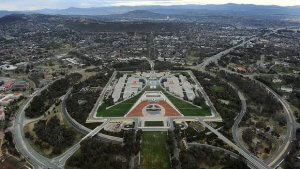If you are about to buy your first home you may be asking yourself, ‘should I fix my home loan or not’? Especially with interest rates at an all time low. Today we take a look at ‘variable’ home loans versus ‘fixed’ home loans.
Disclaimer: Please note our website, including this article, is in no shape or form designed to replace the need to obtain professional advice from experts such as Financial Planners. All information on our website is general & factual in nature, and should not be relied upon. In particular, we wish to remind you that the information in this article is not designed to replace advice. We always recommend you speak to a licensed professional. Please visit our website’s Terms & Conditions for more information. To speak to a licensed Mortgage Broker please click here.

What is a ‘variable’ home loan and a ‘fixed’ home loan?
- A variable home loan is a home loan that comes with an interest rate that the bank can change at their discretion. If the rate changes, your home loan repayments will also change. For example, if the RBA increased rates by 0.25%, it is quite possible that your lender will increase the interest rate on the variable home loan (possibly by the same 0.25%). This would increase your total home loan repayments. On the flip side, if rates were decreased by your lender, your total home loan repayments would reduce.
- A fixed home loan is a home loan that comes with an interest rate that is fixed for a certain pre-determined period of time. The most common fix periods are 1 year, 3 years and 5 years. Should your lender change the variable home loan rate (up or down) your repayments will not be affected if your loan is fixed. Once the fixed period is over, you may fix the remaining home loan balance again, or, switch to a variable home loan rate.
Which is better, ‘fixed’ or ‘variable’?
There is no standard rule when it comes to choosing between a fixed home loan and a variable home loan. There are advantages & disadvantages of both, and no one has a glass crystal ball showing future rate movements.
Common advantages of having a fixed home loan include:
- If rates rise above your fixed rate you will be paying less than the variable interest rate
- Provides you with certainty over home loan repayments, allowing you to more effective budget
Common disadvantages of having a fixed home loan include:
- If the variable rate falls below your fixed rate you will not be benefiting from the rate drop.
- Many fixed loans are not as flexible. You may not be able to make extra repayments. Additionally, if you need to alter your loan you may have to pay break fees.
Split loans
It can be very hard to decide whether to fix your loan or go with a variable home loan. Another option you may not have considered before is the ability to split your loan. That is, you may be able to fix a proportion of your total home loan, while leaving remaining proportion at a variable rate. For example, you could:
- Fix 50% of your home loan, leave 50% variable
- Fix 25% of your home loan for 1 year, 25% for 3 years, 25% for 5 years and leave 25% variable
Other important loan features
Recently my fellow FHBA co-founder Taj Singh wrote a blog about other important home loan features to consider other than the interest rate. To read this blog please click here.
How to decide?
Feeling a little bit confused? I don’t blame you. There are literally thousands of home loan products to choose from. However, the good news is you don’t have to make a decision on your own.
An FHBA Mortgage Broker can help educate you further on home loan options available to you, as well as assist you with the entire application process. To talk to an FHBA Mortgage Broker today please click here



